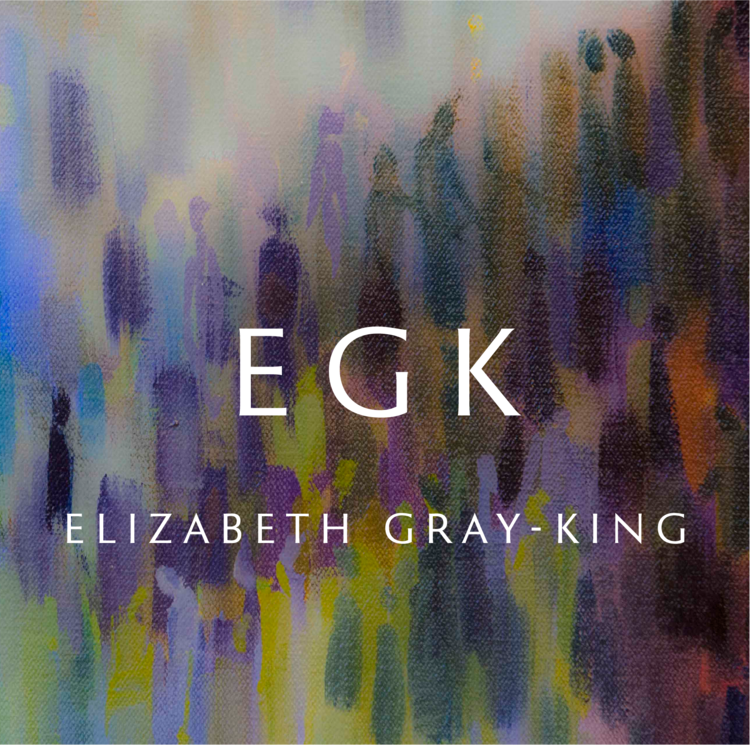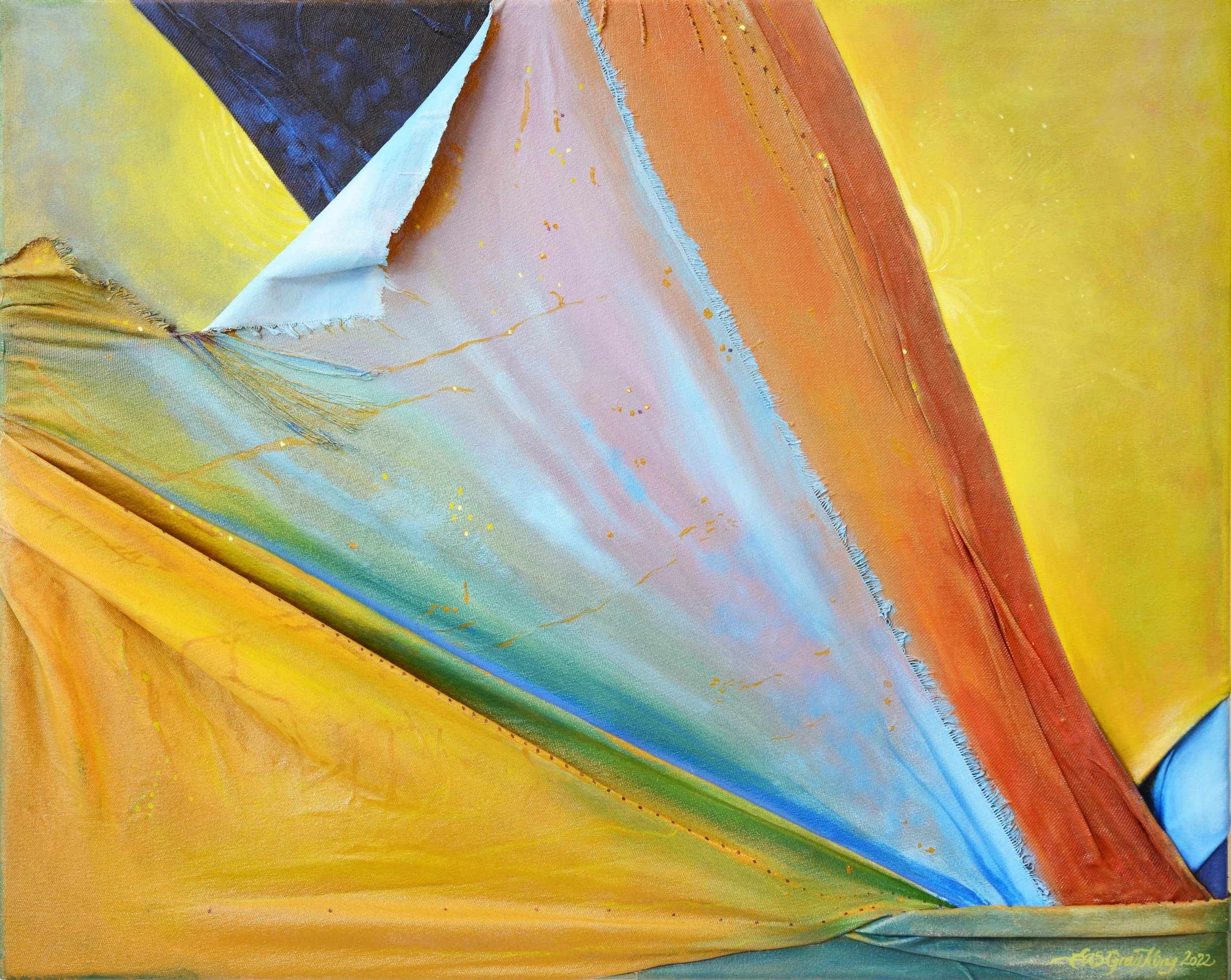The Open to All Exhibition of my artwork is in partnership with the Open Table Network, a charity dedicated to helping churches open spaces for LGBTQI+ people. Peter Jones, one of the Trustees, came to the Coventry part of the tour to represent the charity. These are Peter’s words of experience of it, answering the question put in this blog title:
This was the central question in my mind when I encountered Elizabeth Gray-King's work at Coventry Cathedral through the Open To All exhibition in partnership with the Open Table Network, for whom I am a trustee. Elizabeth has put together a thought provoking collection of her artwork which reflects the diversity of human life, in subtle and yet exposing ways. Much of her work plays with materials and the idea of becoming, with several pieces (including the gorgeous and compelling "Nativity Tancred") showing visible signs of being 'in progress', whether it be through canvas stretched over window frames, or leaving parts exposed and unprimed. For me as a queer, trans man and Christian, encountering Elizabeth's work fostered in me a new and at times conflicted sense of visibility. I found her art inviting me to look at myself, my identity, and my current conflicts through this unfinished, becoming, in-progress and in-between way. Instead of feeling the pressure and demand to resolve things I found my time at Coventry Cathedral and encountering her work to be a space that held me tenderly as unresolved. To be in such an exposing and yet awe inspiring place as Coventry Cathedral, with its dedication to reconciliation (something I have a complex relationship to as for many years I was hounded to reconcile my queerness and my faith), I found myself invited in by Elizabeth's work. In between the space of the cathedral and the stretched canvas, I found myself unexpectedly and somehow tenderly held, with my inner conflicts acknowledged and seen, and yet also soothed for a while. For me this is the wonderful overlap between the art and vision of Elizabeth and the Open Table Network, that within these spaces of becoming, that are so often filled with discomfort, there is opportunity for connection; to find a sense of belonging as you are, without needing to be resolved or finished. Through Elizabeth's gentle and honest depictions of diversity, inclusivity, and becoming, I found a gentle encounter with the Spirit I had been longing for and I was invited to just be and see myself as I am. I felt seen. I am grateful to have spent a day encountering such a precious and tender form of genuine visibility and have been thinking about it ever since

